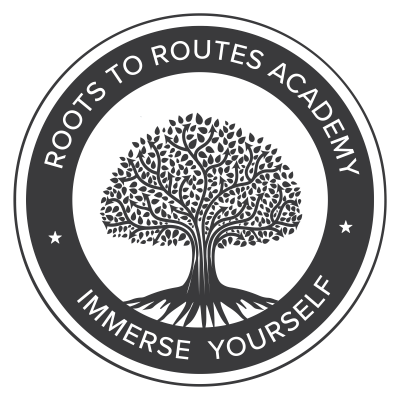5 Tips to Help Every Child Succeed Academically: A Guide for Parents of High School Students
August 16, 2024

Picture this: your teenager is navigating the exciting, yet sometimes tumultuous, waters of high school (grades 9-11). It’s a pivotal time filled with opportunities for growth and challenges that can test their resolve. As a parent, you play a vital role in ensuring they not only stay afloat but also thrive academically.
Academic success during these formative years lays the foundation for a fulfilling and promising future. It equips students with the knowledge, skills, and confidence to pursue their dreams, whether it’s higher education, a fulfilling career, or simply a life filled with purpose. It is also noteworthy that these years are not just about grades—they’re about preparing for the future, developing essential life skills, and building the foundation for college and career success. As a parent, your role in this journey is invaluable.
In this article, we’ll delve into five actionable tips you can implement to empower your child to reach their full academic potential while nurturing their overall well-being. We’ll also explore other helpful strategies and highlight how Roots to Routes Academy is committed to providing comprehensive academic support and confidence-building.
5 Simple Tips to Improve Your Child’s Academic Performance
The 9th to 11th grade is a very crucial period in the life of every child—they are expected to perform academically, participate in extracurricular activities, and begin thinking about their future paths.
As parents, guardians, and instructors, we play a vital role in this process by being actively involved, offering support, and fostering an environment conducive to learning. The following tips will provide you with practical strategies to ensure your child not only excels academically but also enjoys a balanced and fulfilling high school experience.
Tip 1: Encourage a Growth Mindset
The concept of a growth mindset, popularized by psychologist Carol Dweck, posits that intelligence and abilities can be developed through effort, learning, persistence, dedication, and hard work. This contrasts with a fixed mindset, where individuals believe their talents and intelligence are static traits.
Cultivating a growth mindset in your child can significantly impact their academic performance and overall attitude toward learning. This belief fosters a love for learning, resilience in the face of setbacks, and a willingness to embrace challenges.
As a parent, you can cultivate a growth mindset in your child by:
- Praise Effort Over Results: Focus on the effort your child puts into their work rather than just the outcome. For instance, instead of saying, “You’re so smart,” say, “I’m really impressed with how hard you worked on that project.”
- Reframe challenges as opportunities:: Help your child view challenges and failures as opportunities to learn and grow. When they encounter difficulties, encourage them to reflect on what they can learn from the experience and how they can improve.
- Model a Growth Mindset: Show your child that you too are committed to learning and improving. Share your own experiences of overcoming obstacles through persistence and hard work.
By fostering a growth mindset, you empower your child to embrace challenges, persist through setbacks, and view effort as the path to mastery. This mindset not only prepares them for academic success but also equips them with the resilience needed for future challenges in life and career.
Tip 2: Establish a Consistent Study Routine

A consistent study routine helps students manage their time effectively, reduces procrastination, and enhances their ability to retain information. For high school students, especially those balancing multiple subjects and extracurricular activities, having a structured approach to studying is essential. Help your child develop effective study habits by:
- Set Specific Study Times: Establish a regular study schedule that aligns with your child’s natural rhythms. Whether they’re most productive in the morning or evening, consistency is key. Aim for shorter, focused study sessions rather than long, exhausting ones.
- Create a Distraction-Free Environment: Ensure that your child has a quiet, organized space dedicated to studying. Minimize distractions by limiting access to phones, social media, and other interruptions during study time.
- Incorporate Short Breaks: Encourage your child to take brief breaks during study sessions to rest and recharge. The Pomodoro Technique, which involves studying for 25 minutes and taking a 5-minute break, can be highly effective.
- Experiment with Various Effective Study Techniques: Introduce your child to a variety of study techniques, such as active reading, note-taking, summarizing, and practice testing. Help them discover which methods work best for them.
A disciplined study routine helps your child develop strong time management skills and reduces stress, particularly during exam periods. It also instills a sense of responsibility and ownership over their learning process, preparing them for the self-directed learning required in college and beyond.
Tip 3: Foster Open Communication
Maintaining open lines of communication with your teenager is crucial. Effective communication between parents and children is crucial during the high school years. Open dialogue allows parents to understand their child’s academic and emotional needs, offer guidance, and provide support when needed. It also creates a safe space for students to express their concerns, celebrate their successes, and seek advice.
Here are some tips for creating a safe space where your child can feel comfortable sharing their academic struggles and triumphs:
- Regular Check-Ins: Make it a habit to regularly check in with your child about their schoolwork, social life, and any challenges they may be facing. These conversations don’t have to be formal—sometimes, a casual chat during dinner or a car ride can be just as effective. Ask open-ended questions about their classes, assignments, and overall school experience.
- Be Approachable: Create an environment where your child feels comfortable coming to you with their problems or questions. Listen without judgment and offer constructive feedback.
- Actively Listen: When your child talks, give them your full attention. Show empathy and understanding, and avoid immediately jumping in with solutions. Sometimes, just being heard can make a big difference.
- Show Genuine Interest in their Learning: Attend school events, ask to see their work, and celebrate their achievements.
- Be Available: Let your child know that you’re there to support them, whether it’s helping them with homework, brainstorming ideas, or simply offering a listening ear.
Maintaining open lines of communication with your child helps build trust and strengthens your relationship. It also ensures that your child feels supported and understood, which is critical for their emotional well-being and academic success.
Tip 4: Create a Balanced Lifestyle
A balanced lifestyle is essential for maintaining both physical and mental well-being. High school students often face pressure to excel academically while also participating in extracurricular activities, maintaining a social life, and preparing for their future. Ensuring that your child maintains a healthy balance between these aspects of life is crucial for their overall success. Very actionable ways of achieving this include:
- Prioritize Tasks: Help your child prioritize their tasks by creating a schedule that balances schoolwork with other activities. Teach them how to set realistic goals and manage their time effectively.
- Encourage Stress Management Techniques: Introduce your child to stress management techniques such as mindfulness, deep breathing exercises, or physical activity. Encourage them to take breaks when needed and to engage in activities that bring them joy and relaxation.
- Ensure Adequate Rest: Emphasize the importance of getting enough sleep each night. A well-rested mind is more alert, focused, and capable of handling academic challenges.
Balancing academics with extracurricular activities, social life, and rest is key to preventing burnout and promoting long-term academic success. By helping your child create a well-rounded lifestyle, you’re supporting their holistic development and ensuring they are well-prepared for the demands of life beyond high school.
Tip 5: Stay Involved and Informed
Parental involvement in a child’s education has been consistently linked to better academic performance, higher levels of motivation, and a greater likelihood of continuing education after high school. Staying informed about your child’s progress, the school’s expectations, and the academic resources available can make a significant difference. Here’s how you can work at this:
- Attend Parent-Teacher Conferences: Regularly attending parent-teacher conferences allows you to stay updated on your child’s academic performance and to discuss any concerns with their teachers.
- Monitor Grades and Assignments: Keep track of your child’s grades and assignments through school portals or communication with teachers. This will help you identify areas where they may need additional support.
- Be Aware of College Preparation Requirements: As your child approaches the later years of high school, it’s important to stay informed about college preparation requirements, including standardized tests, application deadlines, and financial aid options.
By staying involved and informed, you can provide timely support and guidance, helping your child navigate the complexities of high school and prepare for their future. Your engagement sends a powerful message that you value their education and are invested in their success.

Other Helpful Tips to Help Students Succeed Academically
Beyond the core tips discussed, several other strategies can contribute to your child’s academic success:
- Encourage Reading for Pleasure: Foster a love for reading by encouraging your child to explore books outside of their school curriculum. Reading enhances vocabulary, critical thinking skills, and overall academic performance.
- Partner with Teachers and School Resources: Collaboration with teachers and utilizing available school resources can significantly impact your child’s academic journey. Explore tutoring programs like the ones offered here at Roots to Routes Academy, academic support services, and extracurricular activities that can further enrich your child’s learning experience.
- Promote a Positive Learning Environment at Home: Create a home environment that values and supports learning. This could include having educational resources available, setting aside quiet time for homework, and encouraging curiosity and exploration.
- Teach Organizational Skills: Help your child develop strong organizational skills by providing tools such as planners, to-do lists, and digital calendars. Being organized helps students manage their time more effectively and reduces the likelihood of missed assignments.
- Support Extracurricular Involvement: Encourage your child to participate in extracurricular activities that interest them. These activities not only provide a break from academics but also help develop social skills, leadership abilities, and a well-rounded character.
- Be a Role Model: Demonstrate a positive attitude toward learning in your own life. Whether it’s pursuing a new hobby, taking a course, or simply showing curiosity about the world, your actions will inspire your child to value lifelong learning.
How Roots to Routes Academy is Dedicated to Academic Support and Confidence-Building
At Roots to Routes Academy, we understand the unique challenges faced by students in today’s educational landscape, particularly for those in the black community. Our mission is to provide academic support and confidence-building that goes beyond the classroom. We are proud to offer a curriculum designed by black educators who bring cultural relevance, expertise, and a deep understanding of the needs of our students.
Our programs are tailored to empower students with the knowledge, skills, and self-belief they need to succeed academically and personally. From personalized tutoring sessions to workshops focused on college preparation and career readiness, we are committed to supporting each student’s journey to success.
Our approach is holistic—we believe in nurturing not just the mind but the whole person. Through mentorship, community involvement, and a supportive learning environment, we help students build the confidence and resilience they need to achieve their goals.
Get more professional insights from expert educators at Roots to Routes Academy. Visit our website or contact us today to learn more about our programs and how we can support your child’s academic journey.
We’re So Glad You Made It Here
We know you might still have a few questions or concerns and that’s completely okay. We’re here to listen, to support, and to make sure you have all the information you need.
If something’s on your mind, don’t hesitate to reach out. Just send us a quick message, we’re happy to help.
Once you do, a member of our team will get back to you shortly and you’ll also start receiving our free, value-packed newsletters filled with tips, resources, and insights to support your child’s learning journey.

